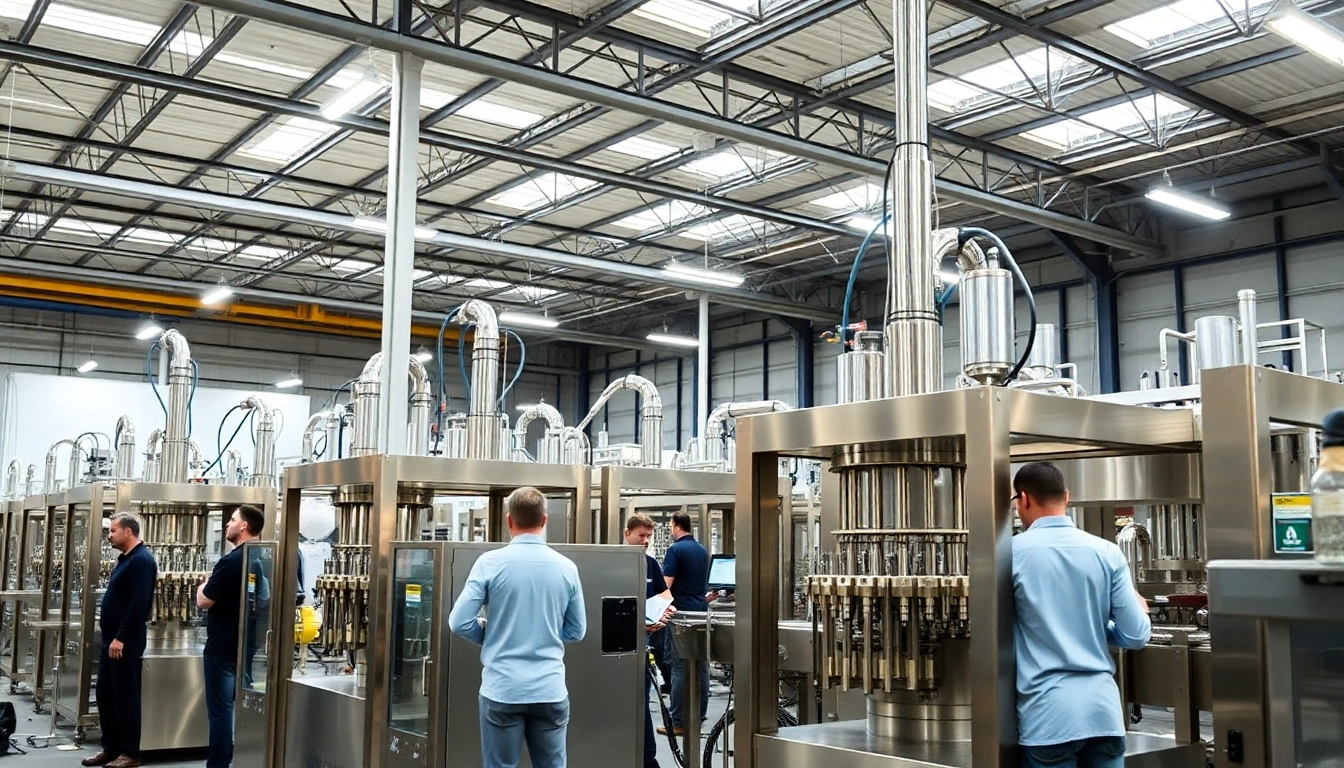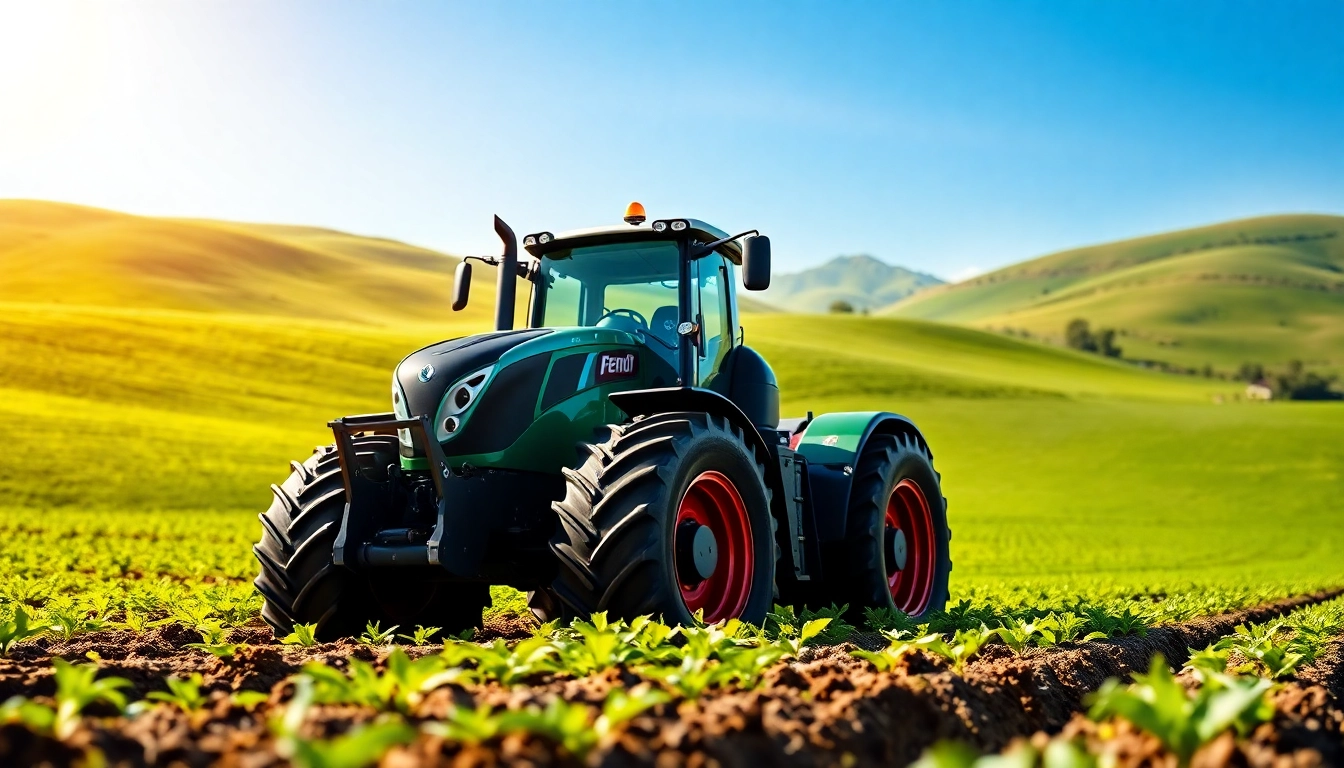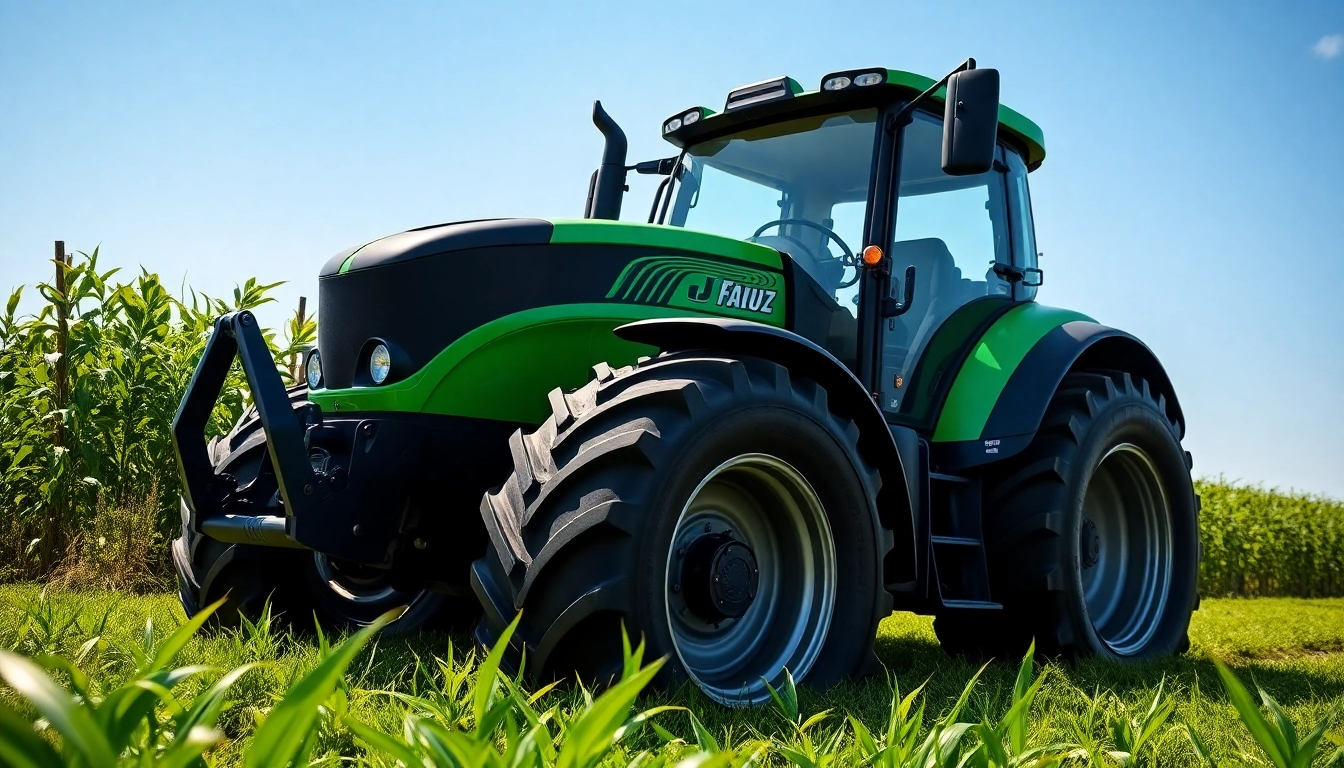
Understanding Filling Machine Technologies
The realm of filling machine technology plays an integral role in various industries, from food and beverage to pharmaceuticals. These machines are crucial for maintaining efficiency and accuracy during the production process. As Filling Machine Manufacturers continuously innovate, the landscape of machinery evolves, integrating advanced technology and automation.
Types of Filling Machines Used Across Industries
Filling machines come in various types, each tailored to meet specific industry needs. The primary categories include:
- Liquid Filling Machines: Ideal for beverages, chemicals, and pharmaceuticals, these machines can be further classified into volumetric, piston, and gravity fillers.
- Powder Filling Machines: This category serves industries dealing with powdered products, such as food and pharmaceuticals. They often use auger or cup fillers for accuracy.
- Paste Filling Machines: Used for thicker substances like sauces and creams, these machines require higher pressure systems to dispense the product effectively.
- Granule Filling Machines: Suitable for dry items such as sugar or salt, these machines typically operate with systems that measure and dispense granules accurately.
Common Applications for Filling Machines
Filling machines are pivotal in various applications across sectors:
- Beverage Industry: These machines fill bottles or cans with liquids ranging from soft drinks to alcoholic beverages.
- Pharmaceuticals: Accuracy is critical here; thus, filling machines ensure the correct dosage of liquid or powder is dispensed into vials or packages.
- Cosmetics: From lotions to gels, filling machines cater to a diverse range of cosmetic products, ensuring quality and hygiene standards are met.
- Food Packaging: Filling machines efficiently package sauces, edible oils, and other food items, maintaining freshness and compliance with health regulations.
How Technology is Evolving in Filling Equipment
The evolution of technology in filling machines is marked by enhanced efficiency and precision. Key developments include:
- Smart Technologies: IoT integration allows real-time monitoring and adjustments during the filling process, increasing accuracy and reducing waste.
- Automation: Automated filling lines increase throughput and consistency, minimizing human error while improving safety and hygiene standards.
- Sustainability Mechanisms: Many manufacturers are now focusing on eco-friendly designs, such as machines that use less energy or are capable of handling recycled materials.
Leading Filling Machine Manufacturers in the Market
The market for filling machines is competitive, with numerous manufacturers vying for market share. Understanding the key players can help businesses make informed purchases.
Top Global Players in the Filling Machine Industry
Several companies stand out as leaders in the filling machine manufacturing sector:
- Accutek Packaging Equipment Company: Recognized for a wide range of filling equipment suited for diverse product types and container formats.
- Cozzoli Machine Company: A leader in liquid filling machines, specializing in filling, capping, and washing technologies.
- Volumetric Technologies: Known for their high-quality bottle-filling machines, they serve multiple industries across North America.
- E-PAK Machinery: Provides advanced solutions for liquid filling processes primarily in the food and beverage sector.
- Filling Equipment Co Inc: Located in Queens, NY, they bring reliability in designing and selling equipment tailored for various applications. Their commitment to quality is evident in their product offerings.
Comparative Analysis of Manufacturing Standards
When evaluating different manufacturers, it is essential to consider their adherence to quality standards:
- ISO Certifications: Manufacturers with ISO certifications demonstrate a commitment to quality management and operational excellence.
- Industry-Specific Compliance: Regulations specific to food and pharmaceuticals necessitate equipment that meets stringent safety and quality guidelines.
- Customer Reviews and Testimonials: Assessing feedback and case studies can offer insights into a manufacturer’s reliability and service quality.
Case Studies of Successful Partnerships
Successful partnerships between manufacturers and businesses highlight the importance of choosing the right equipment:
For instance, a beverage company might partner with Accutek for a custom filling line that enhances production speed. This collaboration not only addresses immediate bottleneck challenges but also includes future scalability, demonstrating mutual benefits for both parties.
Choosing the Right Filling Machine for Your Business
Selecting the appropriate filling machine is critical for operational efficiency. Below are key considerations to make an informed decision.
Key Factors to Consider When Selecting Equipment
Several factors play a vital role when choosing filling machines:
- Product Type: The nature of the product—whether liquid, powder, paste, or granule—greatly influences the machine type required.
- Production Volume: Understanding daily production needs helps determine whether an automated system or a manual machine is appropriate.
- Budget Constraints: Cost considerations should encompass not just the purchase price, but also maintenance and operational costs.
Cost vs. Quality: Making Informed Decisions
While it may be tempting to choose the cheapest option, quality must be weighed against cost:
Investing in a high-quality filling machine typically leads to long-term savings, as these machines often require less maintenance and provide greater accuracy.
Consultation and Custom Solutions for Unique Needs
Many manufacturers offer consultation services to tailor solutions for specific applications:
Custom filling machines designed for unique production lines can significantly enhance efficiency and output quality. This approach is especially important for businesses with specialized or proprietary products.
Maintenance and Best Practices for Filling Machines
To maintain optimal performance, regular maintenance is critical for filling machines. This section outlines best practices that can help extend machine lifespans.
Regular Maintenance to Ensure Optimal Performance
Implementing a preventative maintenance schedule can dramatically improve machine reliability:
- Scheduled Inspections: Regular assessments can help detect issues before they escalate, ensuring continuous operation.
- Lubrication and Parts Replacement: Keeping moving parts well-lubricated and replacing worn components can prevent breakdowns.
- Calibration: Regular calibration checks are critical to maintaining the accuracy of filling machines, especially for products requiring precise measurement.
Common Issues and Troubleshooting Techniques
Common challenges in operating filling machines include:
- Leakage: This could indicate worn seals or misaligned parts; promptly inspecting and replacing seals is essential.
- Under-filled or Over-filled Containers: Calibration or adjustment of machine settings may resolve issues with inaccurate filling.
- Downtime: Assessing and refining operational procedures can minimize downtime and increase operational efficiency.
Training Staff for Effective Machine Operation
Investing in staff training is as crucial as maintaining the machines:
Proper training ensures that employees understand operational protocols, safety standards, and troubleshooting techniques. Regular refresher courses can help staff stay updated on equipment enhancements and industry best practices.
Future Trends in Filling Machine Manufacturing
As industries evolve, so too do the technologies and practices that underpin them. Here, we explore future trends shaping the filling machine manufacturing landscape.
Sustainability Practices in the Filling Industry
With increasing consumer awareness around sustainability, manufacturers are prioritizing eco-friendly practices:
Incorporating energy-efficient technologies and developing machines that minimize waste significantly align with evolving consumer preferences and regulatory requirements.
The Role of Automation and Smart Technology
Automation continues to advance, with smart technologies reshaping operational processes:
Technological integration allows for predictive maintenance, where machines can assess their conditions and alert operators before issues arise, thereby reducing downtime.
Predictions for Market Growth and Innovations
The filling machine industry is poised for significant growth, fueled by advancements in technology and increasing market demands:
As industries push towards greater automation and customization, filling machine manufacturers that innovate and adapt to these trends will likely lead the market.








